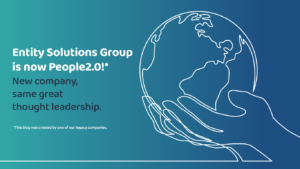The Fourth Industrial revolution and the Digital Age are already upon us, prompting massive change in all industries and presenting challenges for businesses all over the world. The Asia Pacific region is no exception, with many industries that once previously relied on manual labour, now moving towards automation and an increase in Data and IT services. Singapore in particular is investing heavily in the IT industry in order to become a leader in innovation.
The nature of work is also changing, with the traditional 9-5 workday becoming less and less the norm and flexible working becoming more common. A major issue facing businesses in the region today is having access to a global talent pool with the right skill sets needed to take the organisation into the era of digital transformation. Most businesses have been investing in digital technologies and carrying out research in this area already, however according to experts, the pace of change is about to surge dramatically in the years ahead. Now, more than ever, a highly skilled workforce is imperative and skills which haven’t even been taught yet in schools and universities will be in great demand.
So how will this affect Singapore’s workforce?
According to the World Economic Forum report The Future of Jobs: Employment, Skills and Workforce Strategy for the Fourth Industrial Revolution which was released in January 2016, “On average, by 2020, more than a third of the desired core skill sets of most occupations will be comprised of skills that are not yet considered crucial to the job today”. We need to anticipate possible skill requirements of the future and prepare our workforces as best we can for the times ahead. Although it is difficult to predict which skills will be necessary when the job titles have not yet been conceived, we have to look at factors that research tells us will likely pose problems in the coming years. So what are the greatest factors set to impact Singaporean workforces?
- Disruptive innovation – In the Energy and ICT sectors, the report identified one of the greatest factors impacting their workforces is disruptive innovation, the process of designing a new technology which as a consequence outdates another. This will enable businesses to rise to the evolving demands of their customers; however will present workforce challenges as they eradicate some job titles, whilst creating new ones.
- Skill shortages – Considering how difficult it is to predict the skills that will be required without knowing the technology that will be in place even in 5 years’ time, a skill shortage is inevitable. Universities will be unable to prepare and train current students for the future without having the knowledge themselves.
- Intellectual Property – According to the 2017 PWC report, “Proposals to enhance Singapore’s economy” Singapore is well placed to generate income from Intellectual Property. This is due to the fact that “Singapore is recognised as having robust IP protection and is a preferred location for IP ownership.” (PriceWaterhouseCoopers, 2017). If the government chooses to act on this recommendation, there will be a push to encourage IP management activities to be carried out in Singapore, which will generate economic pay offs for Singapore. This will also affect the types of skills and knowledge required of the Singaporean workforce.
- Artificial Intelligence – With technology in this area advancing rapidly, AI is expected to play an important part in the workforce of the future. Many jobs will become obsolete, while new professions will be created – Newly created jobs such as “robot programmers, virtual reality experience designers, remote vehicle operators and blockchain engineers” could become sought after roles in the near future. Robots are being implemented in process lines, replacing the need for many factory labour roles. But robots are also being used in many other industries to reduce labour costs and remove the risks posed by human error, such as in medical procedures. AI will be utilised in industries such as: Healthcare Financial Services Transport Home care for the elderly According to the latest research, Singapore’s digital economy is set to benefit greatly from the development of AI and the government has invested heavily in this area. The Singaporean government has recently identified the Healthcare sector as a growth industry, investing S$24 million and generating approximately 9,000 additional jobs. Roughly half of these jobs will be professional roles (PMET).
- Increased Data and IT demand – There has been a marked increase in demand for Data and IT services in the Asia Pacific region, and in particular, Singapore. Data and IT service centres in Singapore providing large scale cloud and data storage services have seen a boost in business in recent times. Data Center News Asia reports, “The Singapore colocation market generated an estimated SG$1.3 billion this year, and is expected to grow 13% year-over-year in 2018. By 2021, it is expected to be worth SG$2 billion.” Given the rise in demand for this and similar services, Data related IT skill sets will be highly sought after.
Recommendations to ensure your organisation is prepared
- Re-evaluate your human resources model
With the advancement of technology upon us and specialist skills already in short supply, companies have been prompted to re-evaluate their human resources models. A major influence of this change is the drive towards project based work assignments and flexible working arrangements. Utilising contingent workers in specialised areas to address bespoke business requirements provides the crucial benefit to up or downscale as the market dictates.
- Upskill your staff
Businesses will need to adapt to emerging technology promptly, planning ways to upskill existing staff will help to fill the skills gap. It has already been recognised that skills such as cognitive abilities, critical thinking and complex problem solving will be in high demand across all sectors.
- Consider utilising a contingent workforce
For organisations wanting immediate impact, Independent Professionals (IPros), entrepreneurial by nature, take responsibility for their own professional development. These highly skilled professionals are at the forefront of technologies relating to their field and have a willing desire to stay up to date with the latest training.
- Start building your talent pools
Ensuring you have a workforce that can engage effectively with new technology is crucial to the delivery of services customers now expect. Consider taking a proactive approach and thinking ahead to the skills your business will need in the future. Focusing on building strong talent pools with these skills, whilst accepting that these candidates may expect flexible working arrangements, will be the key to creating a more resilient workforce that will be ready for the future of work. For more advice around managing a contingent workforce or assistance with migration solutions please contact Entity solutions.
References:
- https://datacenternews.asia/story/cbre-labels-apac-land-it-and-data-center-opportunity/
- http://www.straitstimes.com/opinion/the-scary-and-exciting-future-of-jobs
- http://www.iaasiaonline.com/software-networks/asia-get-future-ready-fourth-industrial-revolution/
- https://www.pwc.com/sg/en/publications/assets/budget-2018-proposals.pdf



